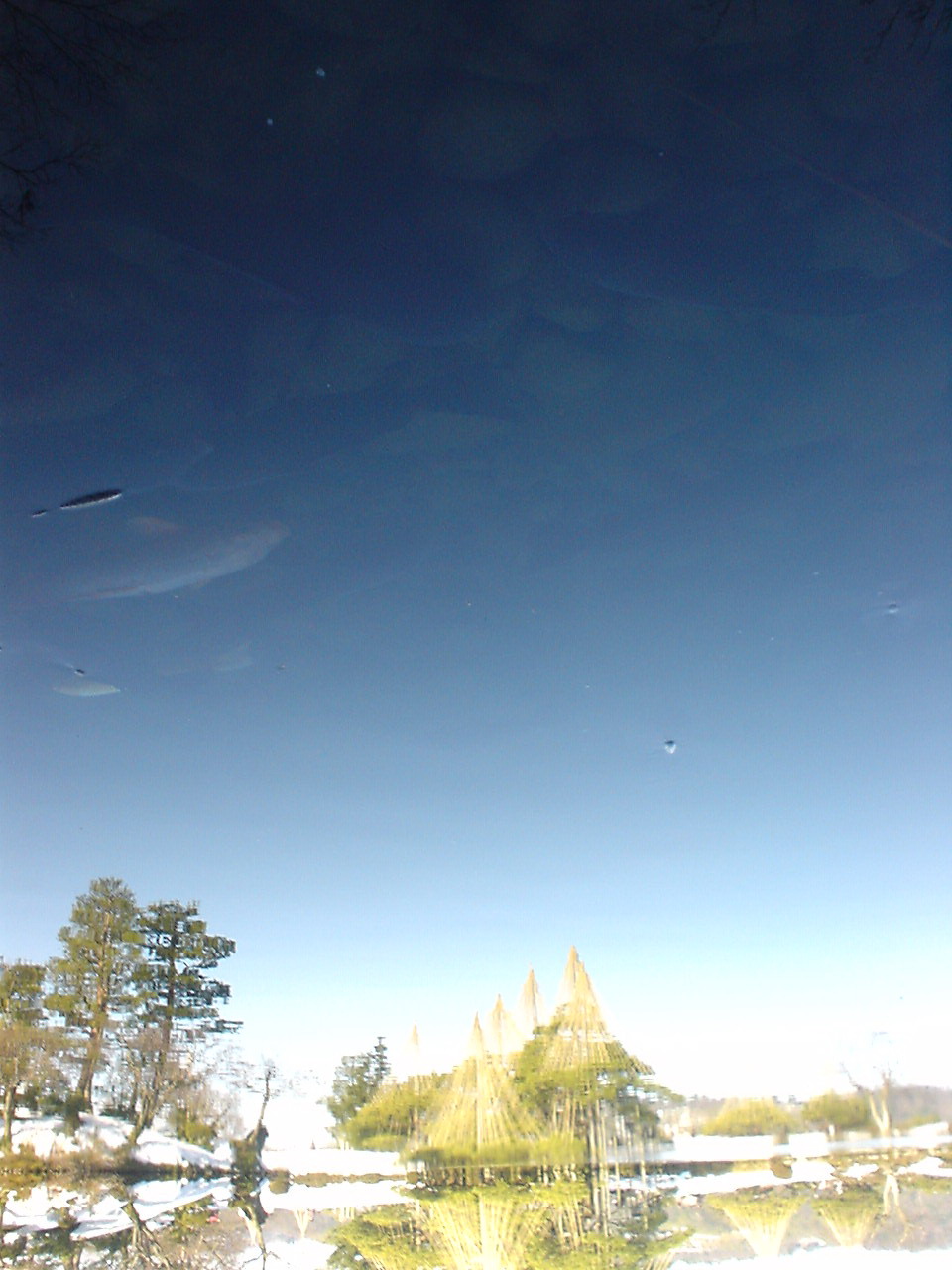FEATURES
The Call to the Creative Commoner: The Digital Humanities and Flexible Copyright
If you try and stand in the way of the open source movement, then you are a counter-revolutionary. You may find yourself blindfolded and up against a crumbling wall, waiting for the collective report that will remove you from the picture and allow the future utopia of free knowledge to inch that little bit closer to reality. Like the hard-liners of the FOSS (Free Open Source Software) movement[ii], the Digital Humanities army marches proudly forward waving its banners and imagining a bright, free future for the Humanities.
Creative Licences and CCMixter
Do you remember a time when you completed the written draft of a poem and signed it with the © symbol beside your name? By including the copyright symbol you probably thought you were asserting your ownership of the poem and establishing yourself as the creator, as well as protecting your exclusive right to publish, perform or otherwise deal with your creation. However, you do not need to include this symbol in order to be protected by copyright law; in Australia, this protection is automatic when an original work is written and you retain control of your work unless you sell or transfer the exclusive rights.
All Rights Relinquished: Permapoesis
While writing this work I have been eating wild foods, vegetables from my garden and a small amount of transported agricultural product. I am in transition, along with my family and some community friends, to relocalise food and energy resources and address the degree to which our participation in a hyper-mediated society degrades the ecologies that support us.
Zoe Rodriguez: The Danger of Copyleft
Where I work, at Copyright Agency Limited, which collects and distributes over $100 million a year for its 17,000 authors and publisher members, we sometimes say when it all gets too hard, ‘nobody ever died because of copyright’. So, it was chastening to see the agony Tolstoy endured late in his life over whether to offer his works to the commons or retain copyright acted out with such passion in The Last Station.
The Poetic Commons
Poetry is a kind of creative commons of the culture. These days we inhabit different microcultures and that complicates matters, but there remains a kind of substratum that most members of say, one country, understand.
Trods Which Follow
Upon each trod, given goes to trail by margins of lay; each shelter earth’s satellite in all our betweens, step pilgrims soil and sky. Ever beneath such plenitude, desire in unfounded ambush, which plots divide upon humility as tendril to …
Peter Larkin’s Knowledge of Place
There are many distractions surrounding the everyday, so many asides busy vying for our attention, alleviating us of our time. Objects are seen less for themselves and more often as materials which become products, products which remove the things themselves from an originated state. Landscapes are demarcated in terms of their service.
Excerpts from ‘Brushwood by Inflection’
The ‘inflection point’ on a branch is where the direction of curve outwards changes to the direction of curve upwards, and is usually a play-off between elastic bending and thickening growth. A branch bends continuously even while it thickens and as such the shape of a branch can be seen as a function of time. But any break-off from that branch provokes a compunction of space across a strewnness which wrangles with its proneness before horizon.
The Death of Poetry in Australian Classrooms
In 1982 Neil Postman first noted that the concept of childhood was disappearing in his book, The Disappearance of Childhood. It's highly unlikely that we'll be saying anything new if we claim that poetry is disappearing from the classroom. And though it is, and has been doing so for decades, poetry itself survives. It's just going to other places. To the small press, to cafes, to cyberspace, even to public transport. Perhaps, if we want poetry to be heard and read in other places too, our society needs to bring it back to schools.
Keiji Minato: Notes on Modern Haiku (4)
Female haiku writers can hardly be categorized either in the language-centered group or in the existential image group, as described in my previous post. Even if they are different from each other and have elements common to male contemporaries, thinking about the genealogy of women haijin seems more informative than mingling them together with male writers.
Keiji Minato: Notes on Modern Haiku (3)
 Avant-garde haiku became bankrupt when its momentum was dissipated by the stabilization/conservative shift of the society around 1970, along with other radical movements in the literary and political arenas. Doubts about the form of haiku now came to be regarded as counterproductive. The basis for these doubts had been the desire to open up a common perspective that would embrace new possibilities for Japanese society as a whole, but the whole was now superimposed on individuals as something that had already been achieved, even if in a doubtful way.
Avant-garde haiku became bankrupt when its momentum was dissipated by the stabilization/conservative shift of the society around 1970, along with other radical movements in the literary and political arenas. Doubts about the form of haiku now came to be regarded as counterproductive. The basis for these doubts had been the desire to open up a common perspective that would embrace new possibilities for Japanese society as a whole, but the whole was now superimposed on individuals as something that had already been achieved, even if in a doubtful way.
Avant-garde haiku was bankrupt when its momentum was dissipated by the stabilization/conservative shift of the society around 1970, along with other radical movements in the literary and political arenas. Doubts on the form of haiku were now counterproductive. The ground for them had been the desire to open up a common perspective that would embrace new possibilities of the society as a whole, but a whole was now superimposed on individuals as something which was already achieved, even if in a doubtful way.
Keiji Minato: Notes on Modern Haiku (2)
The history of Japanese modern haiku was definitely male-centered until quite recently. There have been many superb female haijin; most of them remained in the “kessha (結社)” system (a “kessha” is a group or sect that is led by a master and usually has a hierarchical structure – followers adhere to basic rules their masters set up). The system and rules served positively for some, whose talents were rather nurtured than hindered by the fixed criteria. Others achieved their own voices outside the system, and their haiku reflect various interests outside or sometimes against male sensibilities.
Keiji Minato: Notes on Modern Haiku (1)
Haiku is a literary form. It carries ideological elements from its history as other literary forms do. Some of these elements are deeply ingrained in the genre. For example, seasonal themes and objective descriptions are the two main principles many people in Japan and in other countries believe to be imperatives. While they surely have some relevance (as they help beginners find concrete images and avoid various pitfalls), they are not absolutely necessary conditions for haiku.
Michael Dransfield’s Innocent Eyes
When you think of ways to interrogate innocence, you will sooner or later come to a moral dichotomy. It can be unpackaged as either good or bad. It can oppose guilt, and by implication your innocence allows that you have …
Genevieve Tucker: Online? Present & Accounted For
In 2003 Cordite commissioned Anna Hedigan to review the websites of Australia's established literary journals. Now, four years later, we ask: what's changed? Genevieve Tucker's update looks at the online presences of some of Australia's litjournals in the context of …
David Prater: Hits & Online Readership
Frank Moorhouse's article in The Sunday Age (full text here) discusses the ongoing Meanjin 'controversy' in a much-needed context: that of the troubles currently facing print magazines, as well as some of the problems facing online magazines in Australia.
Leanne Hills: Moving Galleries on Melbourne’s trains
It's a commonly raised question within this community: how to bring poetry back into the public mind? Are we content as readers and writers of poetry to remain marginalised while sport maintains its deified position in this country? Moving Galleries, an initiative recently launched on Melbourne's trains, is an attempt to redress this imbalance.
Rachel Blau DuPlessis and Abstract Morality In Post-Avant Poetry
“Post-avant” poetry is widely considered to be an important branch of the post-modern tree. Yet, a distinction exists between post-avant & “po-mo” in other genres & art-forms.
Wandering in Wuhan
I am astounded to find that ancient and medieval poetry occupies a uniquely central presence in Wuhan's contemporary identity; that, in spite of ideological and legal issues and restrictions, new cutting-edge poetry grows across China's cyberspace; and that all of this is happening in spite of a rapid, and some might say rabid, modernisation and commercialisation.
Patrick Jones responds to James Stuart
When a poet works with a designer, publisher, artist, typesetter, printmaker, stone mason (in Finlay's case), earthmover, or sign writer there is the potential for the poem to materialise (a shift from transformation), and keep us on our feet.
James Stuart: From Text To Texture
James Stuart reviews Words and Things (Patrick Jones, ed.) in our Submerged issue. The review is part of a larger article commissioned by Cordite, available here in PDF format.
Will Day: Richard Frankland’s Charcoal Club / My Deconstruction Fatigue
What came home to me during the Charcoal Club was that regardless of my tribe's on-going conscious or unconscious genocide, the generous indigenous spirit was coming to get me whether I liked it or not, was infiltrating me bit by bit because, like the indigenous Australians I too had been up-rooted, bleached and taken for a fool.
Postcard from Cardiff
I sought it here, I sought it there, I sought it everywhere. It is a sad, but true fact. There are no visible Internet cafes in Cardiff. So when I finally discovered a few terminals at Maccas in the Queen Street mall area, it was a dubious turn of events.










